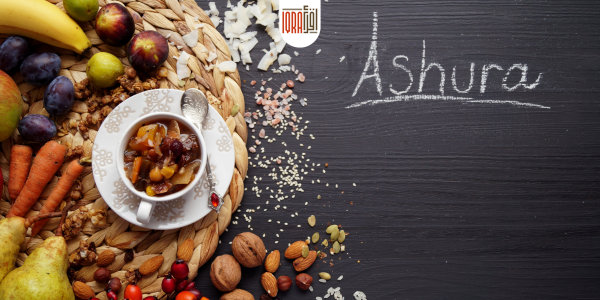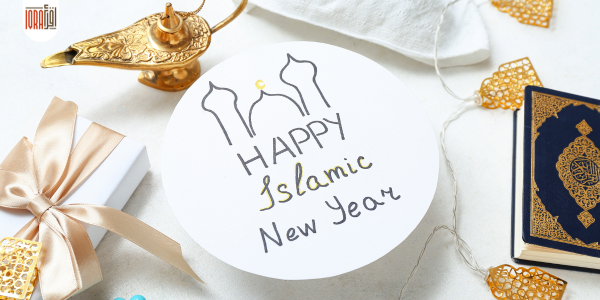A Guide to Commonly Abbreviated Arabic and English Islamic Terminology
What does pbuh in Arabic mean? Are you looking for an Islamic acronym cheat sheet?
Save this page to refer to later!
Here we break down all the pbuh, saw, and ia abbreviations and what they mean.
Did you know there is pbuh in Arabic and English? Keep reading!
Do you ever get a text message or read something online that has pbuh written after the name of Prophet Muhammad? It’s hard to keep up with the Arabic-to-English Islamic phrases, never mind day-to-day Islamic texting lingo.
The world is changing, and we’re breaking it down for you!
Muslims weave Arabic words into regular English conversations, such as “Insha’Allah.” Since it’s so common in speech, abbreviations, like LOL, have been introduced. And, yes, some are very confusing!
This can be especially difficult for new Muslims because many aren’t familiar with Arabic. The use of abbreviations is not meant to replace actually saying the Arabic words, as we are instructed to do so in our religion. Instead, it serves as a reminder to say greetings of peace or PBUH in Arabic or English.
Commonly Abbreviated Arabic and English Islamic Terminology
What is ASLM or ASWRWB in Arabic? And WAS? “Aslm” or “AS” in Arabic is “Assalamu alaikum,” which means “peace be to you.”
“ASWRWB” in Arabic is “Assalamu alaikum wa Rahmatullah wa baraktuh,” which means “peace be upon you and God’s Mercy and blessings.”
“WAS” in Arabic means “Wa Alaikum salam,” which means “and to be peace” – the reply to the greeting of peace.
1. What is IA in Arabic?
“IA” in Arabic is “InshaAllah,” which means “God Willing.”
2. What is PBUH in Arabic or SAW?
“PBUH” refers to English words that mean “peace be upon him.”
PBUH in Arabic is “sallallahu alaihi wasallam” commonly written as “SAW.”
3. What is SWT in Arabic?
“SWT” in Arabic is “Subhanahu wa ta’ala,” which means “the Most Glorified, the Highest.”
4. What are JAK/JZK and WA in Arabic?
“JAK” or “JZK” or “JA” in Arabic is “JazakaAllah Khairan,” which means “may Allah reward you with good.”
“WA” or in Arabic “wa’iyakum,” which means “and to you,” –is the response to JazakaAllah Khairan.
Reasons for Using These Words
It is universal for every Muslim to use these words in their day-to-day lives. Regardless of their native language or country, you’ll always find Muslims using these expressions, and you’ll see them frequently used in text messaging and emails. This is because their source comes from the teachings of our Prophet (peace be upon him) or PBUH in Arabic, Sallallahu Alayhi Wa Sallam.
Here is why we choose these particular words to remember Allah and His Messenger (peace be upon him).
Why we say “Assalamu Alaikum”
The Muslim greeting is the greeting for the offspring of Prophet Adam (upon him be peace):
Abu Hurairah (May Allah be pleased with him) reported: The Prophet (peace be upon him) said, “When Allah created Adam (upon him be peace), He said to him: ‘Go and greet that company of angels who are sitting there – and then listen to what they are going to say in reply to your greetings because that will be your greeting and your offsprings.’ Adam (upon him be peace) said to the angels: ‘As-Salamu’ Alaikum (May peace be upon you).’ They replied: ‘As-Salamu ‘Alaikum wa Rahmatullah (May peace be upon you and the Mercy of Allah).’ Thus adding in reply to him: ‘wa Rahmatullah (and the Mercy of Allah)’ to his greeting. (Riyad as-Salihin 845 – Bukhari and Muslim)
Why We say “Insha’Allah.”
In the 18th chapter of the Quran, Allah tells us about remembering Him in what we want to do:
And never say of anything, “I will definitely do this tomorrow,” without adding, “if Allah so wills!” But if you forget, then remember your Lord, and say, “I trust my Lord will guide me to what is more right than this.” (Quran 18:23-24)
Why We say “Peace Be Upon Him.”
Muslims often use PBUH in Arabic instead of saying “peace be upon him.” We are instructed to send peace on our Prophet (peace be upon him) every time he is mentioned, and even outside of that.
Indeed, Allah confers blessing upon the Prophet and His angels [ask Him to do so]. O you who have believed, ask [Allah to confer] blessing upon him and ask [Allah to grant him] peace. (Quran 33:56)
Abu Huraira reported: The Messenger of Allah, peace, and blessings be upon him, said, “Whoever sends blessings upon me once, Allah send blessings upon him ten times.” (Ṣaḥih Muslim 408)
Ali ibn Abi Talib reported: The Prophet, peace, and blessings be upon him, said, “The miser is one in whose presence I am mentioned, and he does not bless me.”
Why We say “Subhanhu Wa Tala” after Allah
Allah refers to Himself in the Quran with the exact words. Of course, it befits His Majesty that we show utmost respect to the Lord of the Heavens and Earth and acknowledge His Power and Might.
Yet they associate the jinn1 with Allah ˹in worship˺, even though He created them, and they falsely attribute to Him sons2 and daughters3 out of ignorance. Glorified and Exalted is He above what they claim!
Also, in the Quran:
Quran 10:18 – Quran 16:1 – Quran 17:43 – Quran 30:40 – Quran 39:67
Why do We Say JazakaAllah Khairan?
The Prophet (peace be upon) had the best character. Through his teachings and practice, we learn the best way to behave and interact with one another. He taught us in the hadith below how to respond to someone that does something good for us.
Usamah bin Zaid (May Allah be pleased with them) reported: The Messenger of Allah (peace be upon him) said, “He who is favored by another and says to his benefactor: `Jazak-Allah khairan (may Allah reward you well)’ indeed praised (the benefactor) satisfactorily. (Riyad as-Salihin 1496)
You did it! You now know the most frequently used sayings Muslims use and even the abbreviation for it. If you are looking to further your Arabic, make sure to check our Arabic Curriculum and book a free evaluation session.
Keep this post handy for reference next time you come upon an expression like pbuh in Arabic!





2 Comments
Oops comments are disabled